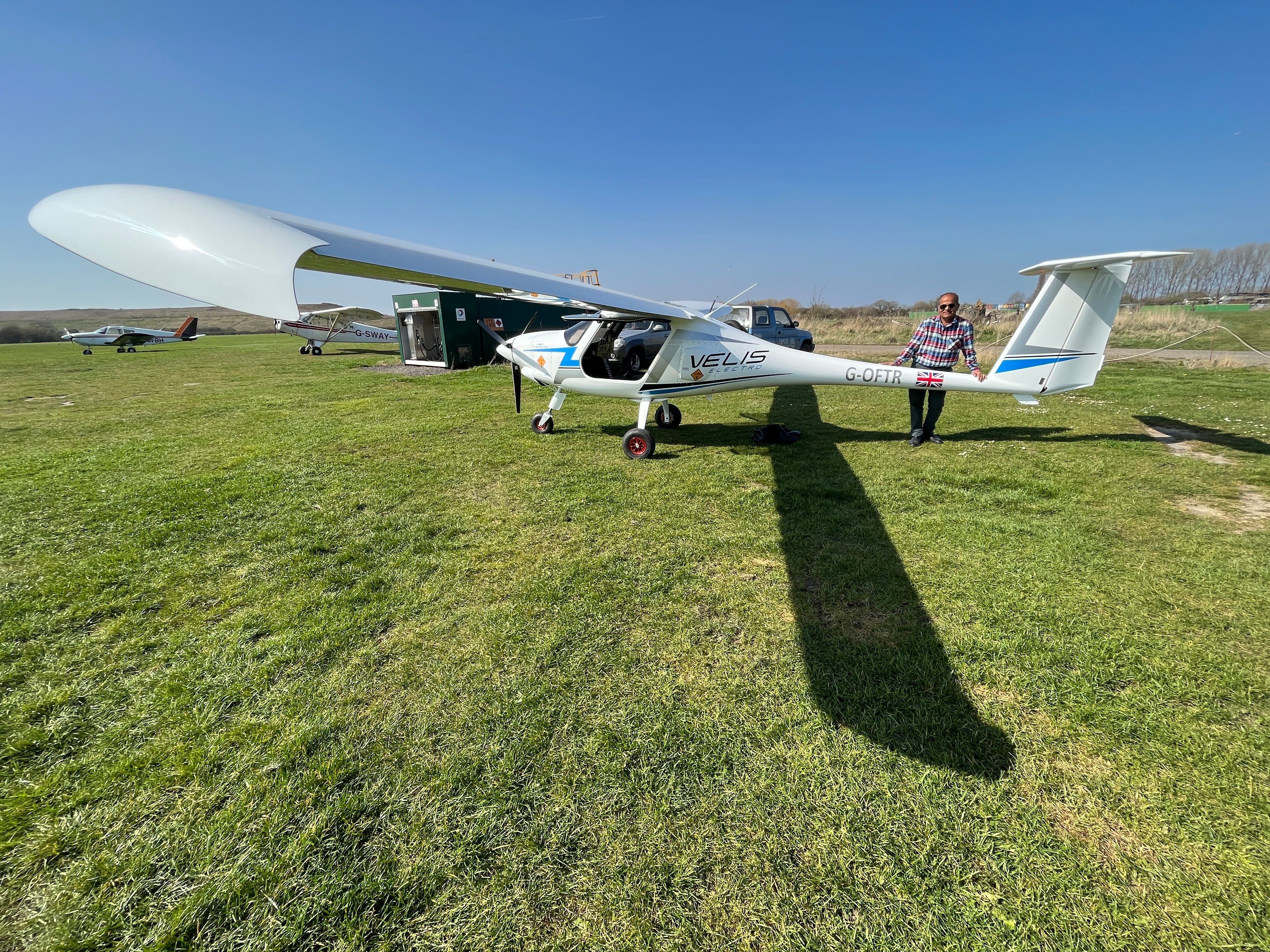Electric planes: the future is flying high above Essex
Exclusive: Simon Calder takes a spin in the all-electric Velis Electro aircraft

Your support helps us to tell the story
From reproductive rights to climate change to Big Tech, The Independent is on the ground when the story is developing. Whether it's investigating the financials of Elon Musk's pro-Trump PAC or producing our latest documentary, 'The A Word', which shines a light on the American women fighting for reproductive rights, we know how important it is to parse out the facts from the messaging.
At such a critical moment in US history, we need reporters on the ground. Your donation allows us to keep sending journalists to speak to both sides of the story.
The Independent is trusted by Americans across the entire political spectrum. And unlike many other quality news outlets, we choose not to lock Americans out of our reporting and analysis with paywalls. We believe quality journalism should be available to everyone, paid for by those who can afford it.
Your support makes all the difference.Essex has never looked so beautiful. From one-third of a mile high, roads and railways embroider a landscape that is far from an urban sprawl: at least 90 per cent of my vision is filled with countryside.
Even better, I can enjoy the green and pleasant land in near silence – and the safe, expert hands of chief flying instructor Deepak Mahajan.
Fifteen minutes earlier, Deepak had introduced me to our plane: the Velis Electro, made in Slovenia by Pipistrel. You will doubtless have seen a few blueprints for electric planes in your time, ranging from rudimentary flying milk floats to elaborate, delta-winged works of science fiction.
But the real thing is a beauty to behold: simple and sleek in its profile, as though nature had designed her ideal plane. And nature is what Pipistrel and Deepak are all about.
Limiting the impact of aviation on the planet is higher profile than ever: on Tuesday it was a key talking point at the Abta convention in Marrakech, with most hopes pinned on sustainable aviation fuel (SAF): powering conventional engines using energy derived from non-fossil sources.
Last month easyJet switched its focus from electric aircraft to hydrogen power. Yet hybrid electric/fossil fuel planes have been trialled for island-hopping links in the Orkney Islands. And, as the pilot banks the nimble aircraft over the slothful Thames Estuary, I am living proof that all-electric aviation is safe and practical.
“I can take off, fly and land in a fully electric aircraft. It’s absolutely mindboggling,” says Deepak.
“This is a proper, certified aircraft which makes a huge change in aviation. It is really zero-emission flight.”
The plane has one battery in the nose and another behind the concise cabin. They provide just about enough energy for an hour of flying.
The trip was organised by Wingly, a platform that connects private pilots with prospective travellers. I have used the service before as a breathtaking way to travel from A to B: there is no better way to reach an appointment at Bristol airport than to fly there from Elstree aerodrome in Hertfordshire.
Now, Wingly is offering a glimpse into the future with half-hour test flights from Damyns Hall aerodrome near Upminster, just inside the M25 – where fossil-fuel users are pumping out CO2 like, well, there’s no tomorrow.
Deepak is a sustainable aviation pioneer – bringing fully electric flight to the UK for the first time, teaching the pilots of tomorrow the basics of flight on what feels like a plane from the future.
Flight training, in which pilots build up hours and experience, is normally a very thirsty business. With the gamechanging Velis Electro, pilots can train and obtain their initial licence without impacting the planet.
What sort of aircraft will they eventually fly, though? With commercial aircraft now burning kerosene again at close to pre-pandemic levels, sustainable aviation still feels tantalisingly elusive.
Yet I am reminded that Bill Gates believes people tend to overestimate the change that will happen in the next two years, and underestimate the change that will occur in the next decade. Necessity, in the shape of the high oil price, could prove to be the mother of invention for commercially viable electric aviation.
After he makes a final turn and lands us gently on the green, green grass of Essex, Deepak says: “The future is here – now. It’s not 10 years away.”
Join our commenting forum
Join thought-provoking conversations, follow other Independent readers and see their replies
Comments